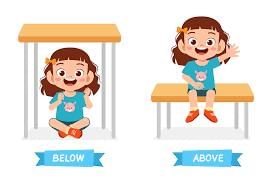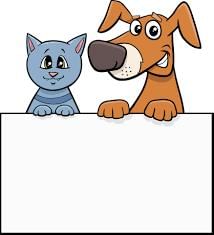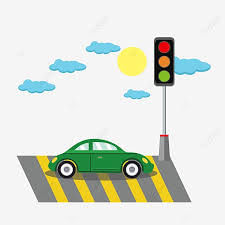UKG Exam > UKG Notes > English for UKG > Positions
Positions | English for UKG PDF Download
Position Words
Position words help us describe where something is located or how it is positioned in relation to other things.

Position Words List
- Above: Something is higher than another object.
- Below: Something is lower than another object.
- Beside: Something is next to another object.
- Behind: Something is at the back of another object.
- In front of: Something is at the front of another object.
- Inside: Something is within another object.
- Outside: Something is not within, but outside another object.
- On: Something is resting or touching the surface of another object.
- Under: Something is beneath another object.
- Between: Something is in the middle of two objects.
- Near: Something is close to another object.
- Far: Something is at a distance from another object.
- Around: Something is encircling another object.
- Next to: Similar to "beside," indicating proximity.
Examples with Pictures
Above:

Example: The bird is above the cloud.
Below:

Example: The fish is below the boat.
Beside:

Example: The cat is beside the dog.
Behind:

Example: The tree is behind the house.
In front of:

Example: The car is in front of the traffic light.
The document Positions | English for UKG is a part of the UKG Course English for UKG.
All you need of UKG at this link: UKG
|
43 videos|115 docs|5 tests
|
FAQs on Positions - English for UKG
| 1. What is the meaning of position words? |  |
Position words are words that provide information about the location, direction, or arrangement of objects or people in relation to other objects or people. They help us understand where something is in space or in relation to something else.
| 2. What are some examples of position words? |  |
Some examples of position words include "above," "below," "behind," "in front of," "beside," "under," "inside," "outside," "next to," "between," "on top of," and "around."
| 3. How can position words be used in everyday life? |  |
Position words are used in everyday life to give directions, describe the location of objects or places, and provide spatial information. For example, when giving directions, we might say, "Turn left at the intersection and go straight until you see the red building on your right." Position words help us communicate and understand where things are in relation to each other.
| 4. How can position words be taught to young children? |  |
To teach position words to young children, it can be helpful to use visual aids and hands-on activities. For example, you can use toys or objects to demonstrate different positions (e.g., placing a toy car "on top of" a block or a teddy bear "next to" a pillow). You can also play games like "Simon Says" where children have to follow instructions that involve position words.
| 5. Why are position words important for early literacy development? |  |
Position words are important for early literacy development because they help children develop spatial awareness and vocabulary skills. Understanding and using position words supports comprehension and expressive language abilities. Additionally, position words are often included in early reading and writing tasks, such as following directions or describing the location of objects in a story.
Related Searches
















